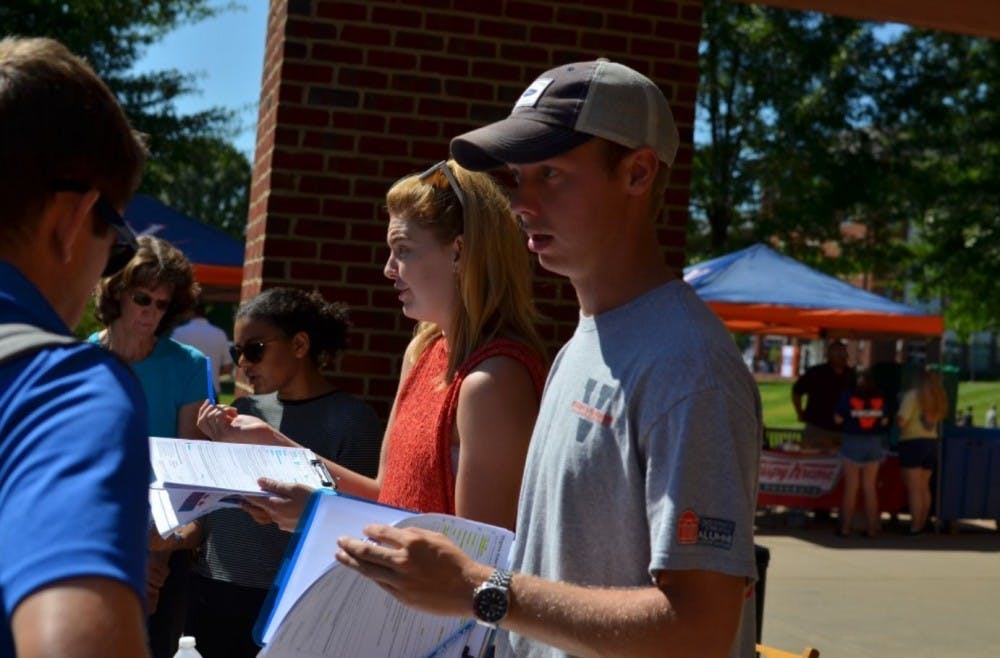Student Council, in partnership with the College Republicans and University Democrats, have been asking professors to sign a petition promising that they will not hold any “significant exams” on Election Day. Additionally, the petition asks professors to distribute information concerning voter registration and the upcoming elections. Last week, the Student Council Representative Body voted unanimously on a resolution to support this petition. I believe all professors should sign this petition in order to encourage student engagement in our political system.
The petition notes that the voting process can be complicated for a variety of reasons including “the existence of six different voting precincts at which students vote, the necessity of re-registering every change of address, a lack of reliable transportation to-and-from many polling places, complex voter ID laws, and a convoluted absentee voting process.” All of these disincentives to voting work in conjunction to deflate voter participation, especially among young people.
According to the Pew Research Center, millennials are now the second largest generation in terms of eligible voters. In spite of that, voter turnout rate among millennials in the 2016 presidential election was just 51 percent, which was significantly lower than the rate for Generation X (63 percent), Baby Boomers (69 percent) and the Silent Generation (70 percent). Additionally, it does not appear that millennials are just lazier than other generations. In 1996, when Generation X was 16-31 years old and starting to vote, the turnout rate of the generation was just 41 percent while the rate for Baby Boomers and the Silent Generation was 60 percent and 69 percent, respectively. All of this data seems to suggest that young people, regardless of generation, are less likely to vote than their older counterparts.
Students have worked diligently to mitigate the effects of the disincentives that young people face. As first years came to Grounds, a bipartisan coalition of political organizations worked to register over 400 students at their new addresses. Furthermore, in last year’s general election Student Council partnered with CAR2Vote and University Parking and Transportation to help students get to the polls. The same service was also utilized for this year’s Democratic caucuses. In addition to just getting students to the caucuses, both the College Republicans and University Democrats informed students about key aspects of the political process, such as the voter ID rules.
As much as students take an active role in increasing their participation in the electoral process, some issues are simply out of their control, such as academic scheduling. Accordingly, students are asking professors to do what students cannot by refraining from holding any major exams on Election Day. Ultimately, students are not looking for a hand-out from professors — they are looking for an ally in their fight to increase student civic engagement.
An argument could be made that a professors’ job is to teach and that changing the syllabus around Election Day would limit their ability to do that job. However, the purpose of the University is far more than just academic. As its mission statement says, “[The University of Virginia] serves the Commonwealth of Virginia, the nation, and the world by developing responsible citizen leaders and professionals.” It is the collective responsibility of students, faculty and staff to ensure that this statement is fulfilled as completely as possible. By pledging not to hold any major exams and distributing information about the upcoming elections, professors would not only make it easier for students to vote — they would also demonstrate the importance of our political process and developing responsible citizen leaders.
With all that said, I want ask all professors at the University to sign on to the pledge in order to create a more civically engaged University community.
Gavin Scott is a Senior Associate Opinion Editor for The Cavalier Daily. He can be reached at g.scott@cavalierdaily.com.







